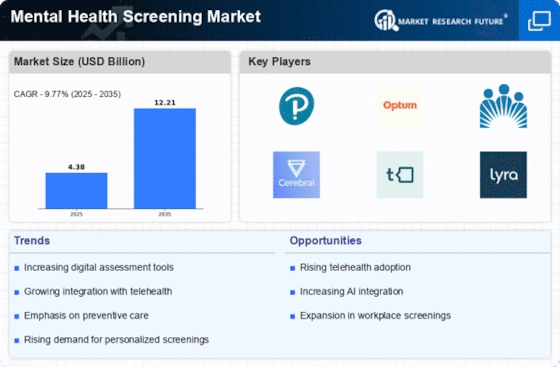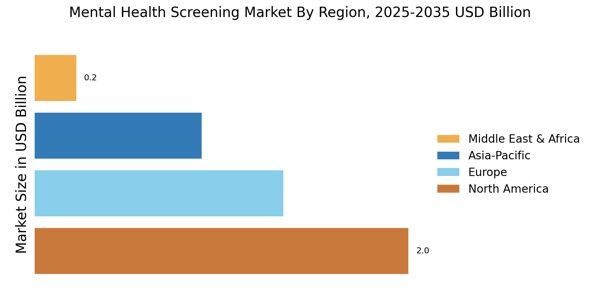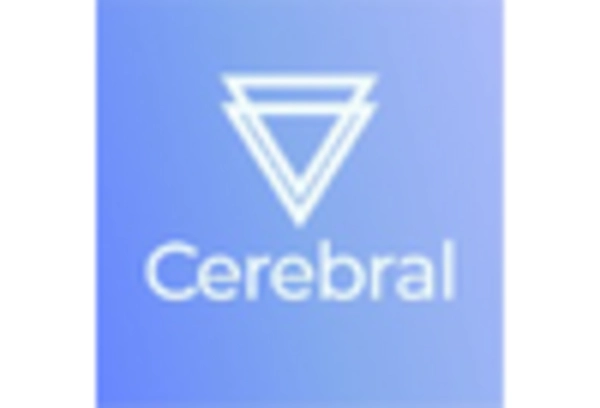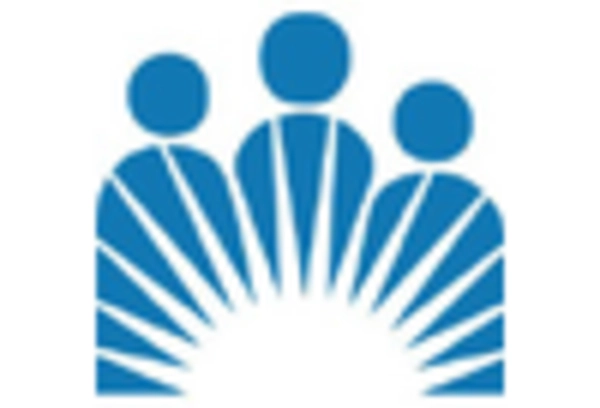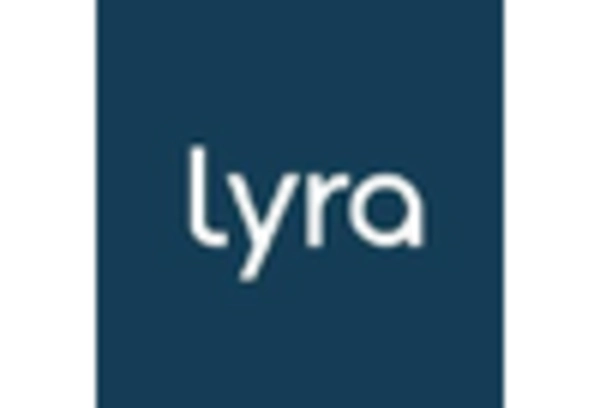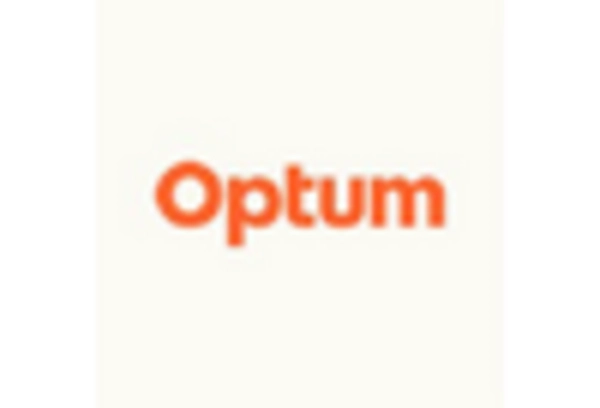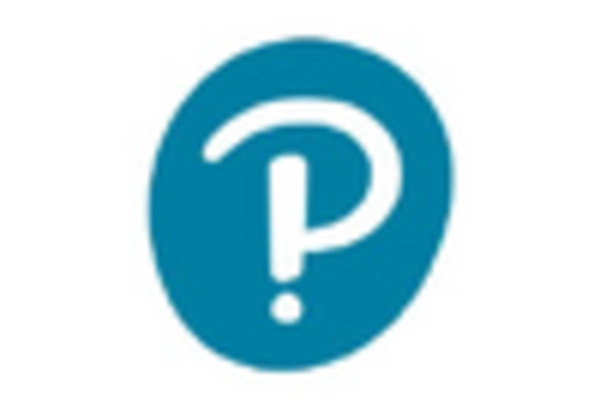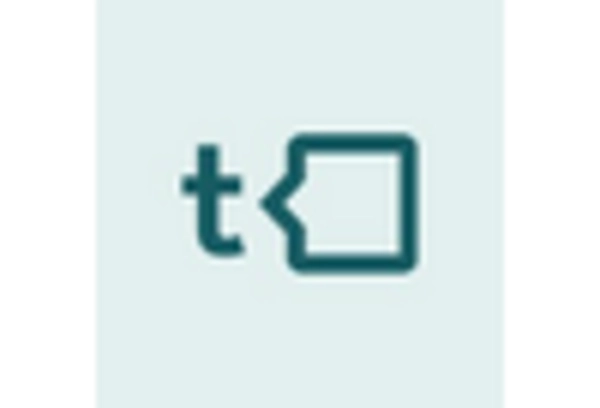Focus on Preventive Healthcare
The shift towards preventive healthcare is a significant driver for the Mental Health Screening Market. As healthcare systems worldwide emphasize the importance of early detection and prevention, mental health screening is becoming an integral part of routine health assessments. This trend is supported by research indicating that early intervention can reduce the long-term costs associated with mental health treatment. Consequently, healthcare providers are increasingly incorporating mental health screenings into their services, which is likely to enhance patient outcomes. The growing recognition of mental health as a critical component of overall health is expected to propel the demand for screening services within the Mental Health Screening Market.
Government Initiatives and Funding
Government initiatives aimed at improving mental health services are significantly influencing the Mental Health Screening Market. Various countries are implementing policies that promote mental health awareness and allocate funding for screening programs. For instance, recent data suggests that public health budgets are increasingly being directed towards mental health services, with some nations reporting a 20% increase in funding over the past few years. These initiatives not only enhance access to screening but also encourage the development of innovative screening tools. As governments recognize the economic and social benefits of addressing mental health issues, the Mental Health Screening Market is likely to experience a surge in demand for comprehensive screening solutions.
Rising Awareness of Mental Health Issues
The increasing awareness surrounding mental health issues is a pivotal driver for the Mental Health Screening Market. As societies become more cognizant of the importance of mental well-being, there is a growing demand for effective screening tools. Reports indicate that approximately 1 in 5 adults experience mental illness each year, underscoring the necessity for early detection and intervention. This heightened awareness is prompting healthcare providers to adopt screening measures, thereby expanding the market. Furthermore, educational campaigns and advocacy efforts are likely to continue fostering a culture that prioritizes mental health, which may further stimulate the demand for screening services and tools. Consequently, the Mental Health Screening Market is poised for growth as more individuals seek to understand and address their mental health needs.
Technological Advancements in Screening Tools
Technological advancements are revolutionizing the Mental Health Screening Market by introducing innovative tools and methodologies. The integration of artificial intelligence and machine learning into screening processes is enhancing the accuracy and efficiency of mental health assessments. For example, mobile applications and online platforms are becoming increasingly popular, allowing individuals to access screening tools conveniently. Data indicates that the use of technology in mental health screening has the potential to increase screening rates by up to 30%. As these technologies continue to evolve, they are expected to play a crucial role in expanding the reach of mental health services, thereby driving growth in the Mental Health Screening Market.
Increased Collaboration Among Healthcare Providers
The trend of increased collaboration among healthcare providers is shaping the Mental Health Screening Market. Interdisciplinary approaches that involve psychologists, primary care physicians, and social workers are becoming more common, facilitating comprehensive mental health assessments. This collaborative model not only improves the quality of care but also streamlines the screening process, making it more accessible to patients. Data suggests that integrated care models can lead to a 25% increase in screening rates, highlighting the effectiveness of teamwork in addressing mental health issues. As healthcare providers continue to work together, the Mental Health Screening Market is likely to benefit from enhanced service delivery and increased patient engagement.


